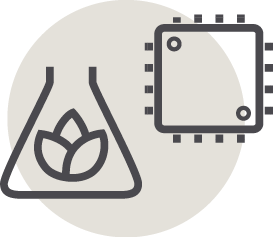Research Australia’s submission to the Parliamentary Inquiry into Research Funding has proposed a review across all funding agencies and government departments to eliminate unnecessary inconsistencies in application guidelines, processes and acquittal procedures. We also called for the development of a common approach to the calculation and payment of funding to cover the indirect costs of research.
Stillbirth Research and Education Inquiry
Research Australia’s submission to the Parliamentary Committee’s Inquiry into Stillbirth Research and Education has acknowledged the enormous burden of stillbirth on bereaved families, and the scope for further research to address this issue.
The submission has highlighted the range of Australian research programs and funding that can be utilised for stillbirth research and our existing research expertise in this area.
The Committee’s report will be released later this year.
Research for a Sustainable WA Health System
Research Australia has urged the Expert Panel responsible for undertaking WA’s Sustainable Health Review to give greater emphasis to the role health and medical research can play in creating a more sustainable health system for Western Australians.
While welcoming the identification by the Review Panel of the need to ‘Harness and support health and medical research, collaboration and innovation’ as one of the Interim Report’s 12 Directions, our response further elaborates the role for health and medical research in achieving the other 11 Directions identified by the Review Panel. We have used examples and case studies provided by our WA members to highlight the many ways that research is already helping reform WA’s health system, and the many opportunities to further leverage and expand this partnership for the benefit of the whole community.
Research Australia’s submission to the WA Sustainable Health Review
Research to Improve Rural and Remote Health
The Senate Community Affairs Reference Committee is inquiring into the ‘accessibility and quality of mental health services in rural and remote Australia’. Research Australia’s submission to the Committee’s initial call for submissions has emphasised the important role that research can play in both understanding and overcoming the issues rural and remote Australians face in getting access to mental health services. Research Australia has encouraged the Committee to engage with Australia’s heath and medical researchers in the course of its Inquiry.
Technology, Research and the Future Aged Care workforce
Research Australia’s submission to the Taskforce on the Aged Care Workforce Strategy emphasises the technological changes facing the aged care sector in the next decade and beyond, and the opportunities this change provides to improve and extend the quality of life of ageing Australians. It also looks at how the future aged care workforce can be better prepared for the aged care workplace of the future, and the new roles, skills and capabilities this will entail.
Finally, an aged care workforce strategy needs to be integrated with other strategies and work to prepare for the future of aged care service delivery. We need a research and innovation strategy for the aged care sector to support the evaluation and integration of new technologies into aged care, and the development of new technologies and other innovations in the delivery of aged care.
Peer Review- 2 Stage Process for Idea Grants
Research Australia’s submission in response to the NHMRC’s Peer Review Consultation has urged the NHMRC to consult further on options for a two stage application process for the Ideas Grants.
There is considerable interest within our membership and across the health and medical research sector in a two-stage application process, and while there is not yet agreement on the approach, there is an appetite for change. Research Australia believes that a two-stage application process for Ideas Grants, incorporating an abbreviated application at the first stage, provides the chance to reduce the burden on applicants and reviewers alike, while better supporting the objectives of Ideas Grants to promote innovative and novel research.
In particular, the process could provide the focus on novel and innovative ideas and reduced emphasis on track record that the NHMRC is seeking. Research Australia’s submission explores the opportunity to adopt a two-stage application process for Ideas Grants and puts forward some considerations for further investigation and consultation.
Health Sector essential to Digital Economy Strategy
Research Australia’s submission to the Department of Industry, Innovation and Science’s consultation on a Digital Economy Strategy has emphasised the importance of digital innovation in the heath sector to Australia’s economy, national wellbeing and future prosperity.
It highlights a number of current initiatives in the health sector that are relevant to digital innovation and makes twelve recommendations to improve the adoption of digital technologies in health; increase innovation in healthcare delivery; and make better use of health data.
My Health Records for research
With the My Health Record gaining wider acceptance, the Australian Government has commenced a consultation on how this data should be used in future for research and public health purposes. The challenge is to establish a Framework that adequately protects individuals’ identities without unnecessarily restricting who can access the data for research purposes, how they can use it, and the time it takes to get access. This is the balance that Research Australia’s submission emphasises- datasets should be as available as possible to researchers, subject to adequately protecting individuals.
The consultation paper on the Framework ruled out the use of My Health Record data for commercial purposes, which is contrary to Government policy as outlined on the Australian Government Public Data Policy Statement. Another complication is that the Framework is being developed in advance of the Government’s response to the Productivity Commission Report on Data Availability, which has proposed a range of significant changes including creating a new National Data Custodian and allowing ‘trusted researchers’ to access identified data. Research Australia’s submission has emphasised the need for the Framework to be forward looking, so as to accommodate future developments is what is a fast moving policy area.
Research Australia’s submission
2030 Strategy for Science, research and innovation
As we are all too aware, Australia scores poorly on the translation of its research discoveries into new products and services. We need to improve the extent to which Australia’s research effort is directed to the questions and problems of greatest importance and how effectively our research is applied to provide solutions.
Bringing research and innovation together in the one Strategic Plan provides an opportunity to drive these improvements and to overcome some of the historic divides between programs to invest smartly in research and in programs to support and drive innovation. In addition to the research, innovation and investment communities, active engagement with the state and territory governments will be vital; it needs to be a ‘whole of governments’ strategy.
Just as importantly, the 2030 Strategic Plan needs a whole of community communication strategy to ensure all levels of society understand the imperative for a greater and more strategic investment in research, technology and innovation, and the benefits this can bring as we plan for the Australia we want in 2030.
Download Research Australia’s submission here.
Funding for Research into Cancers with Low Survival Rates
Research Australia has made a submission to the Senate Select Committee Inquiry into Funding for Research into Cancers with Low Survival Rates. Many of the Terms of Reference have relevance beyond brain cancers, cancers with low survival rates and low incidence cancers; our submission approaches the Inquiry from this broader perspective.
Government funding available for health and medical research is finite. While cancers with low survival rates are undoubtedly worthy of more funding, any increase in funding for one area has implications for the funding available to other disease areas. Improvements in survival are related to global research rather than specifically to the volume or subject of Australian research, and it is important that Australian researchers and patients have access to, and contribute to this global effort. This is particularly relevant for low incidence cancers and other rare diseases, because the number of patients in Australia is likely to be low and appropriate research collaborators are in many cases likely to be based overseas. Thus, when allocating funding we also need to consider the level of funding available and the research activity undertaken globally.
Research Australia also suggests there is merit in looking at approaches taken by other countries. This includes strategies such as rare disease policies that have been established in more than 20 countries as a means of providing a policy framework for a considered and comprehensive approach to the provision of research, diagnosis and access to treatment for rare diseases. In an area where the only available therapies are often experimental, a single policy that brings research, diagnosis and treatment together is valuable.
Read the full Research Australia submission today.








